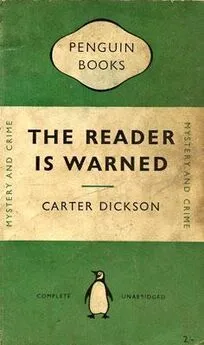Charles Stross - The Merchant’s War
- Название:The Merchant’s War
- Автор:
- Жанр:
- Издательство:неизвестно
- Год:неизвестен
- ISBN:нет данных
- Рейтинг:
- Избранное:Добавить в избранное
-
Отзывы:
-
Ваша оценка:
Charles Stross - The Merchant’s War краткое содержание
The Merchant’s War - читать онлайн бесплатно полную версию (весь текст целиком)
Интервал:
Закладка:
"Sire! This is a great honor, I am sure, but am I to understand that you do not want to bring these guns to bear in the initial battle?"
"Yes." Egon stared at the baron, his eyes disturbingly clear. "There are traitors in the midst of my army, Otto. I know for a fact that you are not one of them-"Otto shuddered as if a spider had crawled across his grave"-but this imposes certain difficulties upon my planning."
Otto glanced round. The two royal bodyguards stood! with their backs to him. "Sire?"
"The witches cannot be defeated by conventional means, Otto. If we besiege them, they can simply vanish into their shadow world. There they can move faster than we can, obtain weapons of dire power from their demonic masters, and continue their war against us. So to rid my kingdom of their immediate influence, I must render their castles and palaces useless as strong points."
Egon paced around the nearest ammunition crate. "At the outset, I determined to pin them down, forcing them to defend their holdings, to prove to my more reluctant sworn men that the witches arc vulnerable. Your raids were a great success. For every village you put to the sword, another ten landholders swore to my flag, and for that you will be rewarded most handsomely, Otto." His eyes gleamed. "But to allow you to live to a ripe old age in your duchy-"he continued, ignoring Otto's sharp in-take of breath"-we must force the witches to concentrate on ground of our choice, and then massacre them, while denying them the ability to regroup in a strong place. To that end, it occurs to me that a castle can be as difficult to break out of as it is to break in to-especially if it is surrounded by machine guns. This is a difficult trick, Otto, and it would be impossible without the treachery of their servitors and hangers-on, but I am going to take the Hjalmar Palace-and use it as an anvil, and you the hammer, to smash the witches."
Traveling across New Britain by train in a first-class suite was a whole lot less painful than anything Amtrak or the airlines had to offer, and Miriam almost found herself enjoying it-except for the constant nagging fear of discovery. Discovery of what, and by whom, wasn't a question she could answer-it wasn't an entirely rational fear. I Willi feel like an impostor everywhere I go, she realized. Kiasmus's attempts to engage in friendly conversation over dinner didn't help, either: she'd been unable to make small talk comfortably and had lapsed into a strained, embarrassed silence. The tables in the wide-gauge dining car were sufficiently far apart, and the noise of the wheels loud enough, that she wasn't worried about being over-heard: but just being on display in public made her itch as if there was a target pinned to her back. The thing she most wanted to ask Erasmus about was off-limits, anyway-the nature of the errand that was taking a lowly shopkeeper haring out to the west coast in the lap of luxury. I'm going to see a man about his hook? That must be some book-this journey was costing the local equivalent of a couple of around-the-world airline tickets in first class, at a time when there were soup kitchens on the street corners and muggers in the New London alleyways who were so malnourished they couldn't tackle a stressed-out woman.
That was more than enough reason to itch. Things had gone bad in New Britain even faster than they had in her own personal life, on a scale that was frightening to think about. But the real cause of her restlessness was closer to home. Sooner or later I'm going to have to stop drifting and do something, she told herself. Relying on the comfort of near-strangers-or friends with secret agendas of their own-rankled. If only I had that laptop working! Or I could go home and call Mike. Set things moving. And then -her imagination ran into a brick wall.
After dinner they returned to the private lounge, and Miriam managed to unwind slightly once they were on their own. There was a wet bar beside the window, and Erasmus opened it: "Would you care for a brandy before bed?"
"That would be good." She sat down on the chaise "They really overdid the dessert."
"You think so?" He shook his head. "We're traveling in style. The chef would be offended if we didn't eat."
"Really?" She accepted the glass he offered. "Hmm She sniffed. "Interesting." A sip of brandy and her stomach had something else to worry about: "I'd get fat fast if we ate like that regularly."
"Fat?" He looked at her oddly. "You've got a long way to go before you're fat."
Oops. It was another of those momentary dislocation that reminded Miriam she wasn't at home here. New British culture held to a different standard of beauty from Hollywood and the New York catwalks: in a world where agriculture was barely mechanized and shipping was slow plumpness implied wealth, or at least immunity from starvation. "You think so?" She found herself unable to suppress a lopsided smile of embarrassment, and dealt with it by hiding her face behind the brandy glass.
"I think you're just right. You've got a lovely face, Miriam, when you're not hiding it. Your new hairstyle complements it beautifully."
He looked at her so seriously that she felt her ears Hush. "Hey! Not fair." A sudden sinking feeling, Is that what this is about? He gets me alone and then- "I'm-" He did a double-take. "Oh dear! You- Did I say something wrong?"
Miriam shook her head. He seemed sincere: Am I misunderstanding? "I think we just ran into an etiquette black hole." He nodded, politely uncomprehending. "Sorry. Where I come from what you said would be something between flattery and an expression of interest, and I'm just not up to handling subtlety right now."
"Expression of...?" It was his turn to look embarrassed. "My mistake."
She put the glass down. "Have a seat." She patted the chaise Erasmus looked at it, looked back at her, then perched bird-like on the far end. Better change the sub-met, she told herself. "You were married, weren't you?" she asked.
He stared at her as if she'd slapped him. "Yes. What of it?"
Whoops. "I, uh, was wondering. That is. What happened?"
"She died," he said tersely. He glanced at the floor,
then raised his brandy glass.
Miriam's vision blurred. "I'm sorry."
"Why? It's not your fault." After a long moment, he shrugged. "You had your fellow Roland. It's not so different."
"What- "she swallowed"-happened to her?" How long ago was it? she wondered. Sometimes she thought she'd come to terms with Roland's death, but at other times it still fell like yesterday.
"Twenty years ago. Back then I had prospects." He raised an eyebrow as if considering his next words. "Some would say, I threw them away. The movement-well."
"The movement?"
"I was sent to college, by my uncle-my father was dead, you know how it goes-to study for the bar. They'd relaxed the requirements, so dissenters, freethinkers, even atheists, all were allowed to affirm and practice. His majesty's father was rather less narrow than John Frederick, I don't know whether that means anything to you. But anyway... I had some free time, as young students with a modest stipend do, and I had some free thoughts, and I became involved with the league. We had handbills, to write and print and distribute, and a clear grievance to bring before their lordships in hope of redress, and we were optimistic, I think. We thought we might have a future."
"The league? You had some kind of political demands?' Miriam racked her brains. She'd run across mention of the league- league of what had never been clear-in the samizdat history books he'd loaned her, but only briefly right at the end, as some sort of hopeful coda to the authorial present.
"Yes." He looked distant. "Little things like a universal franchise, regardless of property qualifications and religion and marital status. Some of the committee wanted women to vote, too-but that was thought too extreme for a first step. And we wanted a free press, public decency and the laws of libel permitting."
"Uh." She closed her mouth. "But you were..."
The frown turned into a wry smile. "I was a young hothead. Or easily led. I met Annie first at a public meeting, and then renewed her acquaintance at the People's Voice where she was laying type. She was the printer's daughter, and neither he nor my uncle approved of our liaison. But once I received my letters and acquired a clerk's post, I could afford to support her, which made her father come round, and my uncle just mutter darkly about writing me out of his will for a while, and stopped doing even that after the wedding. So we had good four years together, and she insisted on laying type even when the two boys came along, and I wrote for the sheets -anonymously, I must add-and we were very happy. Until it all ended."
Miriam raised her glass for another sip. Somehow the contents had evaporated. "Here, let me refill that," she said, taking Erasmus's glass. She stood up and walked past him to get to the bar, wobbling slightly as the carriage jolted across a set of points. "What went wrong?"
"In nineteen eighty-six, on November the fourteenth, six fine fellows from the northeast provinces traveled to the royal palace in Savannah. There had been a huge march the week before in New London, and it had gone off smoothly, the petition of a million names being presented to the black rod- - but the king himself was not in residence, being emphysemic. That winter came harsh and early, so he'd decamped south to Georgia. It was his habit to go for long drives in the country, to lake the air. well, the level of expectation surrounding the petition was high, and rumors were swirling like smoke: that the king had read the petition and would agree to the introduction of a bill, that the king had read the petition and threatened to bring home the army, that the king had this and the king had that. All nonsense, of course. The king was on vacation and he refused to deal with matters of state that were anything less than an emergency. Or so I learned later. Back then, I was looking for a progressive practice that was willing to take on a junior partner, and Annie was expecting again."
Miriam finished pouring and put the stopper back in the decanter. She passed a glass back to him: "So what happened?"
"Those six fine gentlemen were a little impatient. They'd formed a ring, and they'd convinced themselves that the king was a vicious tyrant who would like nothing more than to dream up new ways to torment the workers. You know, I think-judging by your own history hooks how it goes. The mainstream movement spawns tributaries, some of which harbor currents that flow fast and deep.
The Black Fist Freedom Guard, as they called themselves, followed the king in a pair of fast motor carriages until they learned his habitual routes. Then they assassinated him, along with the queen, and one of his two daughters, by means of a petard."
"They what?" Miriam sat down hard. "That's crazy!"
"Yes, it was." Erasmus nodded, calmly enough. "George Frederick himself pulled his dying father from the wreckage. He was already something of a reactionary, but not, I think, an irrational one-until the Black Fist murdered his parents."
"But weren't there guards, or something?" Miriam shoo her head. What about the secret service? she wondered. I someone tried a stunt like that on a U.S. president it just wouldn't work. It wouldn't be allowed to work. Numerous whack-jobs had tried to kill Clinton when he was in office: a number had threatened or actually tried to off the current president. Nobody had gotten close to a president of the United Stales since nineteen eighty-six. "Didn't he have any security?"
Читать дальшеИнтервал:
Закладка:






![Джеймс Купер - Зверобой, или Первая тропа войны [The Deerslayer, or The First Warpath]](/books/1068494/dzhejms-kuper-zveroboj-ili-pervaya-tropa-vojny-the.webp)


